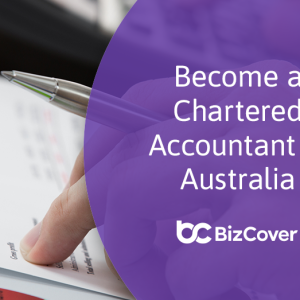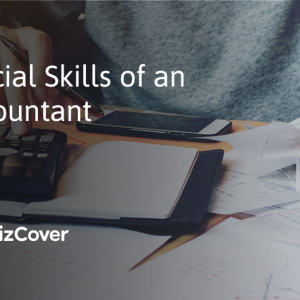Accountants are finance and business management professionals who play an important role in business transactions. They review, organise and analyse financial information to improve a company’s financial health and wellbeing.
A career in accounting may be great for you if you enjoy working with numbers, have a knack for identifying a reducing accounting risks, and have strong maths skills, analytical skills, and problem-solving skills. There are many accounting career paths that up and coming accountants may work in as consultants, or they may work in-house with businesses ranging from small and medium businesses through to national and international corporations.
So, what does an accountant do and what are the steps required to become an accountant? Learn more about the pathways for becoming a qualified accountant in Australia.
The path to becoming a qualified accountant in Australia
While there are several routes to becoming a qualified accountant in Australia, they generally all start with enrolling in and graduating from an undergraduate degree at university. As such, becoming a practising accountant may start with enrolling in and completing a relevant undergraduate degree, such as any of the following:
- Bachelor of Accounting
- Bachelor of Commerce (Accounting)
- Bachelor of Business (Economics and Finance)
- Bachelor of Finance
- Bachelor of International Business (Accounting)
- Bachelor of Business (Accounting)
Some undergraduate degrees are endorsed by CA-ANZ or CPA and may be preferred options for aspiring accountants. If you choose to forego a bachelor’s degree you may instead start your journey to becoming a practising accountant by enrolling in any of the following:
- Diploma of Accounting
- Certificate IV in Accounting
- Certificate IV in Bookkeeping
If you are planning to take the IPA accounting route, you are not required to complete a bachelor’s degree. However, at minimum you must hold a diploma of accounting, or similar.
Understanding Australia’s three accounting designations: CA vs CPA vs IPA
There are three professional accounting bodies in Australia that provide the membership and certification rights required to officially and legally fulfil the functions of an accountant. Each has its own set of educational requirements and accountant qualifications. And while the CPA skills set and the chartered accountants requirements have a lot of common ground, there are subtle differences.
Your accountant education pathway will be determined by your choice to join either Certified Practising Accountants (CPA), Chartered Accountants Australia and New Zealand (CA ANZ), or the National Institute of Public Accountants (IPA). Let’s look at each professional accounting body aspiring accountants can choose from when starting their journey to becoming an accountant in Australia.
1. Certified Practising Accountants (CPA)
Certified Practising Accountants award a CPA certification to individuals who have completed 14 parts of required education. Completing eight parts of the CPA certification is equivalent to a bachelor’s degree in accounting, while a further six parts is equivalent to a postgraduate course, plus three years of undergraduate studies. CPA Australia has 170,826 members in more than 100 countries and regions, supported by 19 offices globally.
2. Chartered Accountants Australia and New Zealand (CA-ANZ)
Chartered Accountants Australia and New Zealand (CA ANZ) boasts more than 134,420 financial professionals across Australia and New Zealand. Aspiring CA hopefuls are required to hold a bachelor’s degree in accounting or similar to gain CA membership.
To maintain their CA designation, CA-ANZ members are required to take additional accounting studies under the Chartered Accountants Program offered by the CA institute, while also gaining three years’ experience.
3. National Institute of Public Accountants (IPA)
The IPA Accounting Program from the National Institute of Public Accountants offers two awards: the Graduate Certificate of Public Accounting (GCPA) and the Deakin University Master of Business Administration (MBA). Depending on an individual’s underlying accountant qualifications and designation, IPA members may need to complete the GCPA component before they are eligible to enrol in the Deakin MBA.
Exploring accountancy specialisation
Once they’ve obtained their preferred accounting designation, qualified accountants may consider concentrating their work into specialist accounting disciplines in order to gain recognition as a specialist with advanced knowledge and skills in a niche area of the accounting profession. Some of the most common accounting specialisations include:
- Assurance;
- Commercial finance;
- Corporate finance;
- Corporate treasury;
- Financial accounting;
- Forensic accounting;
- Insolvency;
- Internal audit;
- Management accounting;
- Risk assessment; and
- Tax.
How accountants can boost their income
While the median earnings for full-time employed practising accountants in Australia is $1,756 per week, (which equates to an annual accountant salary of $91,312 annually), there are a number of other ways that qualified accountants can increase their income using the skills they have already refine, including the following:
- Freelance accounting
- Bookkeeping
- Consulting
- Coaching
- Teaching accounting
- Tutoring accounting students
It’s worth noting that before you take on any freelance clients, it may be worth checking with your employer (if you have one) that there are no conflicts of interest.
How Bizcover helps accountants with accounting insurance
As a tech innovator in the small business insurance space, BizCover provides a quick and easy way for accountants to compare competitive accounting insurance* quotes online and purchase their accounting insurance in less than 10 minutes. Common types of accounting insurance that accountants may consider include:
Professional Indemnity insurance
Protects your business from losses arising out of acts, errors and omissions from a wide variety of services, including:
- Accounting and bookkeeping errors
- Failure to fully comply with audit undertaking
- Incorrect tax preparation
- Returns not lodged in time
- Negligence in rendering professional services
- Incorrect analysis and interpretation of the numerical data
Business Insurance
An insurance package that provides cover for business contents, stock, tools and commercial premises when an insured event occurs. A Business Insurance package also covers portable equipment, glass and for loss of revenue due to business interruption in specified circumstances. In addition, cover is available for public liability, tax audit, employment practices and statutory liability risks.
Cyber Liability insurance
Cyber Liability insurance is business insurance that helps protect your business from claims and supports your profitability if a cyber breach or attack occurs. Costs associated with defending a cyber claim are also covered.
Learn more about insurance for accountants and compare competitive insurance quotes, get covered in just 10 minutes, and get on with your day. If you prefer a phone call you can reach our friendly team on 1300 920 863.
This information is general only and does not take into account your objectives, financial situation or needs. It should not be relied upon as advice. As with any insurance, cover will be subject to the terms, conditions and exclusions contained in the policy wording.
© 2022 BizCover Pty Limited, all rights reserved. ABN 68 127 707 975; AFSL 501769
ABN 68 127 707 975; AFSL 501769


